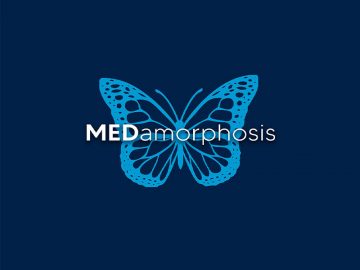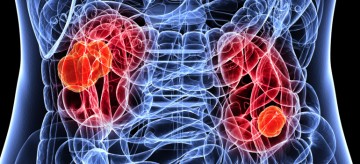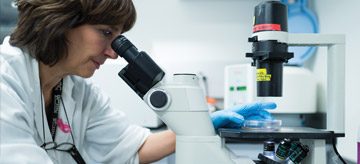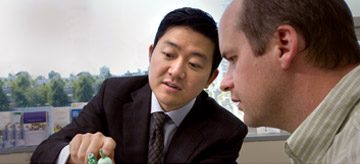UBC Sexual and Reproductive Medicine Fellowship
Fellowship Overview: The objective of this fellowship is to provide clinical, surgical, academic experiences to prepare the fellow to pursue an academic or private/community practice in sexual and reproductive medicine.
Sexual & Reproductive Medicine Program: This program functions under the direction of Dr. Ryan Flannigan and is located at the Vancouver General Hospital. This program has several areas of clinical focus:
- Peyronie‘s Disease. Typically, hundreds of patients with Peyronies disease will be evaluated and treated (i.e. verapamil injections, penile traction, penile plication, plaque incision grafting, penile implants).
- Erectile Dysfunction. Patients are managed with a full arrange of medical, and surgical treatment (i.e. PDE5i’s, ICI, 2-piece and 3-piece penile implants). Opportunities will be present to attend group cognitive behavioral sessions for psychogenic or situational erectile dysfunction.
- Infertility patient evaluation and treatment. Treatment includes medical hormonal manipulation, microsurgical varicocele repairs, VE’s, VV’s, microTESE’s, PESA’s, and TESE’s. Opportunities will also be available for PVS and EEJ for sperm retrieval in spinal cord injured men through the Vancouver Sperm Retrieval Clinic.
- Low Testosterone. Patients are evaluated and managed with a variety of therapies such as T injections, natesto, gel-based therapy, hCG and clomiphene.
- Vasectomies. No scalpel vasectomies are frequently performed in the clinical setting.
- Chronic scrotal pain. Patients are evaluated and treated with multi-modal therapy, spermatic cord injections, and microsurgical denervations.
- Sexual Rehabilitation in cancer survivors. This program is centered with the Prostate Cancer Supportive Care Program and involves a biopsychosocial approach to treating pelvic cancer survivors and their partners for sexual dysfunction. This program over sees 5 clinical sites across the province.
This program also has several areas of research focus:
- Male Infertility. Numerous studies are investigating the mechanisms contributing to non-obstructive azoospermia. Techniques revolve around single cell investigations and multi-OMICs techniques. In vitro and regenerative techniques are being developed and utilized to further investigate and potentially treat male infertility such as tissue organoids, and 3-D bioprinting. Other avenues of research are utilizing technological applications such as machine learning.
- Peyronie’s research. Several studies are investigating the cellular dysfunction of Peyronie’s fibroblasts, and potential genetic and immunologic mechanisms of dysfunction. Technological approaches to optimizing Peyronie’s treatments are also being investigated.
- Erectile Dysfunction. Engineering approaches to novel penile implant designs are being investigated.
- Sexual Rehabilitation in Cancer survivors. Prospective data collection, expansion of existing programs are being investigated.
- Men’s Health. Opportunities for population-based men’s health exist.
Personnel:
- Program Director: Ryan Flannigan
- Research Lab Manager: Meghan Robinson
- Clinical & Surgical Office Assistant: Sunny Zheng
- Other Clinical, Surgical & Research Staff: Dr. Mark Nigro, Dr. Daniel Rapoport, Dr. Nathan Hoag, Dr. Victor Chow, Dr. Ken Poon, Dr. Chris Wu, Dr. Stacy Elliot, Dr. Lori Brotto, Dr. Karl Torbicki, Dr. Shauna Correia, Dr. Miriam Driscoll.
Locations: The primary location for clinic will be at the Diamond Health Care Center located at 2775 Laurel Street, on the 6th floor. Fellows will Join Dr. Flannigan at some of the IVF centers in the Vancouver area such as Olive Fertility 400 East Tower, 555 West 12th Avenue; and Pacific Center for Reproductive Medicine 330-507 West Broadway, 5th floor. Most surgical procedures are performed at the University of British Columbia Hospital located at 2211 Westbrook Mall. Some OR’s may be performed at Vancouver General Hospital located at 899 West 12th Avenue, Pacific Center for Reproductive Medicine, or other private surgical facilities. The majority of research will be performed at the Robert Ho Research building located at 2635 Laurel Street, adjacent to VGH and Diamond Health Care Center.
Fellowship Duration: Fellows may apply for one, or, two-year durations. However, this must be agreed upon prior to initiation of the fellowship.
Clinical & Surgical Responsibilities: The fellow’s primary responsibility is to attend clinics and OR’s with Dr. Flannigan. Graduated responsibility will be provided by Dr. Flannigan at his discretion. Fellows will provide 1 weekend of call per month at UBC Hospital (no overnight emergency department).
Expectations of a Typical week: A typical week involves 2 clinical days, 1 surgical day and 2 research days.
Surgical Experience & Expectations: Fellows will participate in Dr. Flannigan’s ORs. Fellows with Canadian accreditation will bill surgical assist fees when eligible. Surgical cases may include: vasectomy reversals (i.e. VV and VE’s), microTESEs, TESE’s, PESA’s, microsurgical varicocele repairs, Peyronie’s plications, Peyronie’s plaque incision grafting, penile implants, and some general urology.
Clinical Experience & Expectations: Fellows will attend clinic with Dr. Flannigan and participate in patient evaluation, diagnostics, and management. The fellow will become familiar with the EMR and participate in charting and prescribing. Clinics are modularized and consist of Peyronie’s disease clinics, injection clinics (i.e. ICI, testosterone, Verapamil), Peyronies in-office curvature assessments, duplex penile ultrasound, erectile dysfunction clinics, hypogonadism clinics, infertility clinics, cancer survivorship clinics and chronic scrotal pain clinics. Opportunities will exist to participate in related sexual medicine clinics, neuro-based sexual and reproductive dysfunction including PVS and EEJ sperm retrieval, sexual rehabilitation in cancer survivors.
Research Responsibilities: Fellows will be provided a primary project prior to starting their fellowship. Trainee grants and scholarships are often available, and it will be expected that they apply for these awards identified by Dr. Flannigan if eligible. Fellows will integrate into the research team and work collaboratively with other members of the team. It is the goal of our research program to provide broad exposure to different projects with a predominant focus on a primary project. The Flannigan Lab is well set up with ethics approvals and workflow protocols; however, fellows may be responsible for creating or modifying new ethics submissions, and working with Meghan Robinson for reagent ordering on their respective project. Fellows are also expected to be involved with experiments, data collection, analysis, and manuscript writing. We work in a very collaborative environment and lots of opportunity will be available for learning new techniques or collaborating with groups that have the ability to assist with analyses or experiments (eg. bioinformatic support). Fellows will be expected to complete projects through publishing abstracts and manuscripts, and perform associated manuscript revisions with Dr. Flannigan when requested by journals. Opportunities for presentation of abstracts at local, national, and international meetings will exist, but will have to be approved by Dr. Flannigan prior to abstract submission. Career development funding opportunities should be sought out within the last year of fellowship to help facilitate career transition to an independent investigator.
Teaching Responsibilities: Fellows are expected to work with residents and medical students in clinical and surgical patient care. Fellows may also be asked to contribute to resident half-day teaching and/or educational presentations to local health care provider groups.
Financial Considerations: Compensation for the fellowship will be set out in the appointment offer letter. All costs involved in research must be pre-approved by Dr. Flannigan. Conference attendance costs and all related costs including travel costs are approved at the discretion of the fellowship program director and is dependent upon availability of funding.
***
Summary
We are very excited to have the opportunity to teach some of the top research fellows from all over the world, such as yourselves. Working together to reach our mandate of improving the sexual and reproductive health of patients all over the world will provide a rich learning environment for both the fellows and the research staff and faculty of the Sexual and Reproductive Medicine Program at UBC. Please do not hesitate to discuss any concerns with Dr. Flannigan.
Program Contact Details:
Ryan Flannigan
Address: 2775 Laurel Street, 6th Floor Urology Reception
Vancouver, BC, Canada V5Z 1M9



